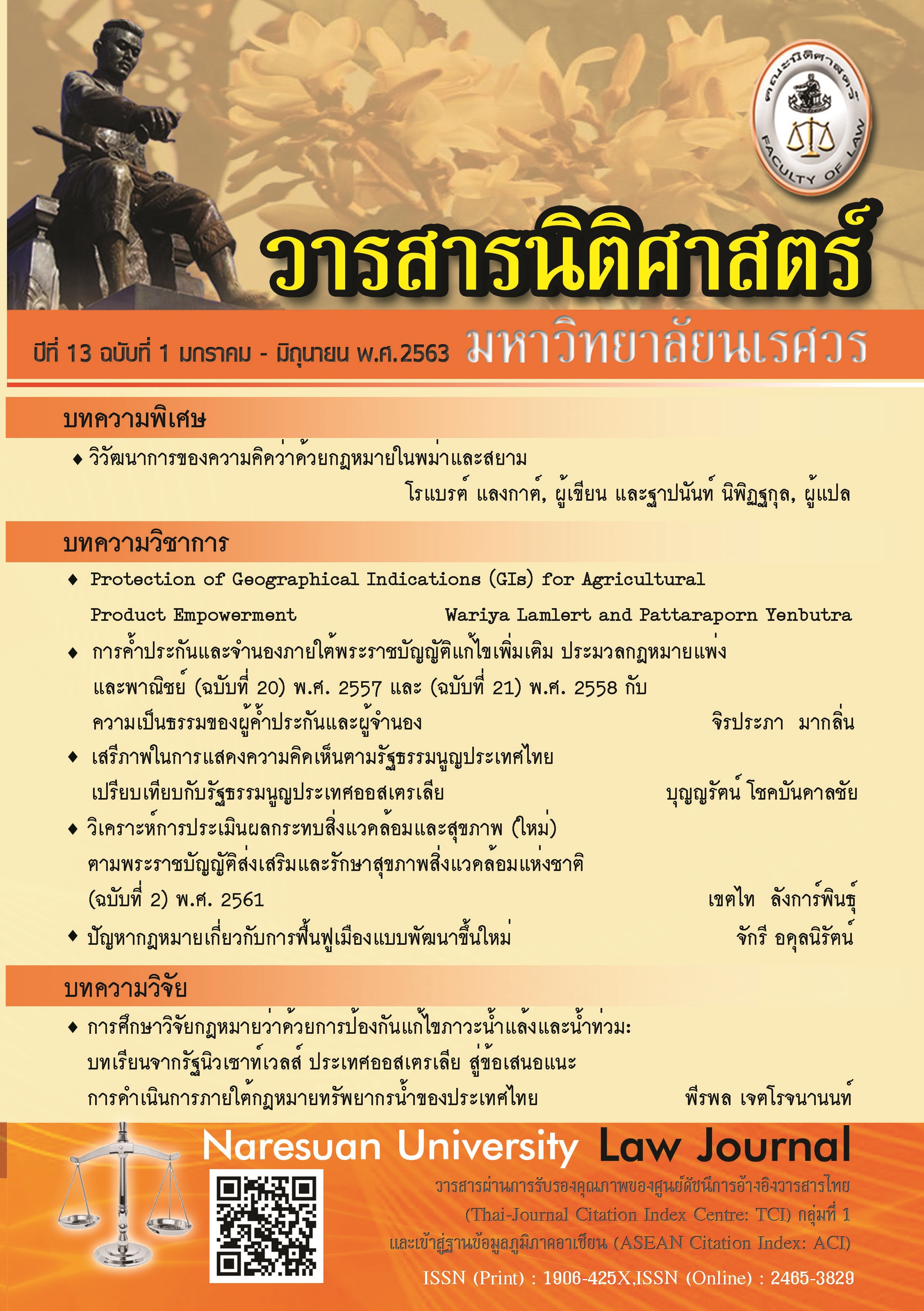Freedom of Expression: The Comparative Analysis between Thai and Australian Constitutional Rights
Main Article Content
Abstract
The purpose of this article is to study and compare freedom of expression as constitutional right under the Thai and Australian Constitutions. The study found that freedom of expression is not clearly provided under Australian Constitution. However, The High Court of Australia has confirmed that freedom of expression has been protected under constitution as “Implied freedom”. The freedom is implied because the Constitution established a representative and responsible government to support the idea of representative democracy. The High Court also accepted political qualified privilege defend and build up the test to determine if a law infringes on implied freedom of political communication, which are: (1) Does the law effectively burden the freedom in its terms?, (2) Are the purposes of the law and the means compatible with the maintenance of the constitutionally prescribed system of representative government?, (3) Is the law reasonably appropriate and adapted to advance that legitimate objective? Thai constitution clearly provides the protection of freedom of expression. While the High Court of Australia has right to decide whether any act violate implied freedom, the Constitution of the Kingdom of Thailand B.E.2560 gives right to A person whose rights or liberties guaranteed by the Constitution are violated, has the right to submit a petition to the Constitutional Court for a decision on whether such act is contrary to or inconsistent with the Constitution. Thai judiciary system also gives right to a person whose rights that guaranteed by Constitution are violated to initiate case to administrative court. Both legal systems recognize that freedom of expression is not an absolute freedom.
Article Details
References
Banjerd Singkaneti. Basic Knowledge of Rights, Liberty and Human Dignity. 5th ed. Bangkok: Winyuchon, 2015. [in Thai]
Boonsri Mewongukote. Constitutional Law. 9th ed. Bangkok: Textbook and Teaching Materials Project, Faculty of Law, Thammasat University, 2016. [in Thai]
Boonyarat Chokebandanchai. Media Law: The Protection of Privacy and Reputation. Phitsanulok: Naresuan University, 2015. [in Thai]
Butler, Desmond A., and Sharon Rodrick. Australian Media Law. 5th ed. Pyrmont, NSW: Thomson Reuters (Professional) Australia, 2015.
Crone, Tom. Law and the Media, edited by Philp Alberstat, Tom Cassels, and Estelle Overs. 4th ed. Woburn, MA: Taylor & Francis, 2002.
Overbeck, Wayne. Major Principles of Media Law. Belmont, CA: Thomson Wadsworth, 2006.
Pearson, Mark. The Journalist’s Guide to Media Law: A Handbook for Communicators in a Digital World. Australia: Allen & Unwin, 1997.
Rabban, David M. Free Speech in Its Forgotten Years. New York: Cambridge University, 1997.
Woraphot Wisarutphichit. Rights and Freedoms According to the Constitution of the Kingdom of Thailand 199. 2nd ed. Bangkok: Winyuchon, 2000. [in Thai]


